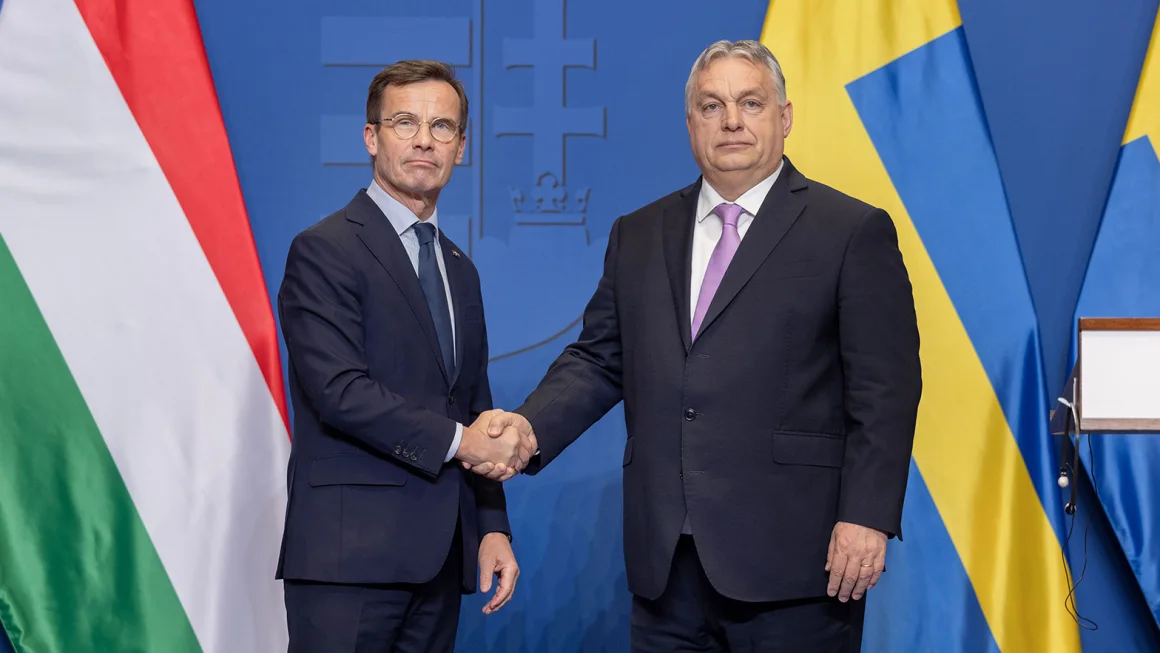In a significant development that marks a new chapter in Euro-Atlantic security dynamics, Hungary’s parliament has officially approved Sweden’s bid to join the North Atlantic Treaty Organization (NATO), effectively clearing the last obstacle in the Nordic country’s path to membership. This approval comes after nearly two years of negotiations, symbolizing a notable geopolitical setback for Russian President Vladimir Putin, who has openly opposed NATO’s expansion near Russia’s borders.
The journey to this moment was marked by intense diplomacy, highlighted by Swedish Prime Minister Ulf Kristersson’s recent visit to Budapest. Discussions with Hungarian Prime Minister Viktor Orban culminated in a defence and security cooperation agreement, including Hungary’s acquisition of four Swedish-made Gripen fighter jets. The overwhelming support in the Hungarian parliament, with 194 members voting in favour and only six against, underscores the broad consensus on Sweden’s accession.
“Today is a historic day,” proclaimed Kristersson, acknowledging the milestone on X shortly after the vote. Sweden’s formal integration into NATO awaits the submission of its instrument of accession to the United States, the treaty’s depository, signifying a united front in the face of evolving security challenges. NATO Secretary-General Jens Stoltenberg echoed this sentiment, asserting that Sweden’s membership “will make us all stronger and safer.”
This expansion brings NATO’s membership to 32 countries, directly challenging Russia’s strategic posture, especially in light of the ongoing conflict in Ukraine. The inclusion of Finland and now Sweden, both of which abandoned their long-standing policy of non-alignment in response to Russia’s actions, significantly extends NATO’s frontier with Russia, reinforcing the alliance’s deterrent capability.
The path to this enlargement had its challenges. Turkey and Hungary had previously delayed their approval, citing various concerns. However, diplomatic efforts, including Sweden’s tightening of its anti-terror legislation and promises of closer security cooperation with Turkey, eventually paved the way for consensus. Despite criticism for stalling and its close ties with Putin, Orban’s government affirmed Hungary’s commitment to European security, recognizing Sweden as a “strong and reliable ally.”
Sweden’s accession occurs at a critical juncture, with the war in Ukraine entering a new phase and global attention increasingly divided. The move reflects a broader strategic calculus, recognizing the importance of unity in the face of authoritarian challenges and the complex landscape of global security. It also highlights the ongoing debates within Western democracies about the balance between supporting international security initiatives and addressing domestic priorities amid rising populist sentiments.
As Sweden prepares to join the ranks of NATO, the alliance stands strengthened, ready to navigate the challenges of a rapidly changing world order. This expansion signifies a bolstered collective defence mechanism and a reaffirmation of the transatlantic partnership’s shared values and commitments.







